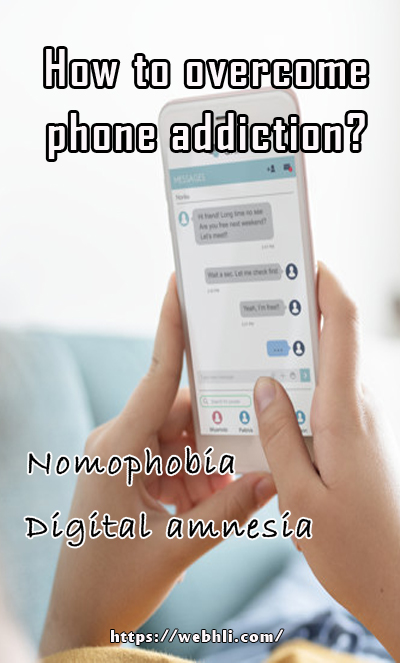The modern world has introduced many wonderful inventions that have made life more convenient.
Household chores that once took all day to complete can be finished within an hour; traveling far distances that once took weeks to cross now take a matter of hours. Letters that may
have taken months for a loved one to receive, if they weren’t lost in transit, can be substituted for a clear and almost instantaneous text message.
Perhaps most conveniently, the average person can research any question they have in an instant. With computers and smartphones, a person has the entire history and collection of human knowledge at their fingertips. All you have to do is ask Siri or Google, and you can earn yourself a good-old-fashioned “YouTube Degree!”
Yet as spectacular as these technological achievements are, there are of course pitfalls that come with such an amazing ability. No one can have it all, and there must be drawbacks. Nothing is for free, as they say, and this is certainly the case with an increase in technology being apart of everyone’s daily life.
As freeing and liberating as having access to a smartphone can be, it is also very confining and damaging. A phone can be addicting, in all honesty. These are more than just concerns and
grudges against the new era; these claims are indeed backed by scientists and mental health specialists.
No one could have possibly predicted that this would be an issue. Technological advances are almost always intended to provide a solution to a problem that exists in society.
It is doubtful that at the birth of the mobile phone innovation process, inventors intended for such harmful side effects as depression, addiction, poor hygiene, and other conditions that will be discussed below, would spread across an entire generation.
Regardless of the original intentions, the inventors of cell phones had in mind, the influence these devices have over people is very apparent.
Again, while people from older generations might be skeptical that such a seemingly trivial thing can create a phobia, this is a real phenomenon. Any parent raising children in the modern
age might have an inkling of this feeling, if they have ever taken away their child’s tablet or cell phone as a punishment.
And what always happens? The child will throw the fit of all fits, perhaps even escalating into a panic attack because they can’t handle not having access to their mobile device.
Many parents might view this as simply a child being possessive of a shiny new toy, but this is a much deeper issue than simply wanting to have something. This is a need to have something, a
need that consumes the individual to the point of obsession.
There is a crisis, especially among the young, revolving around phone addiction.
What is Phone Addiction and How It Affects Us
Phone addiction may sound silly to some readers who remember a time before smartphones and 5G internet, but it is a real and serious issue plaguing thousands of people every single day. Consider another term for phone addiction - this term is referred to as “nomophobia,” which is the fear of being without a mobile phone.
This type of addiction is a disorder that involves the compulsive overuse of mobile devices. These compulsive habits are typically quantified by the total amount of time that a person is
online within an average day, as well as the total number of times a person accesses their phone. However, compulsive overuse is just one facet of phone addiction.
This type of addiction is typically supplemented by concurring internet addiction. This is when a person cannot control their urges and behaviors regarding computer use and the internet.
This can lead to someone suffering from psychological distress, as well as mental and physical impairment.
Worse yet, it is extremely easy for a modern-day person to become addicted to the internet. At the beginning of the internet revolution in the late twentieth century, the internet was relatively difficult to access - you had to be technologicallysavvy to successfully surf the web.
Nowadays, this process has been simplified and color-coded through social media and other apps. Rather than having to understand a computer programming language and perform a series of keystrokes, now with a click of a button and a swipe right you can access any kind of content you could imagine.
Plus, due to factors that will be discussed below, it is extremely easy to endlessly scroll and lost sense of time due to the ease of access.
Short Term Memory Problems
Short-term memory loss is when someone forgets something that was experienced recently.
This is something normal that happens as people age, but it can also be a sign of a deeper problem.
Incidents involving shortterm
memory loss seem to be occurring much more frequently among people from the younger generations. Sometimes this happens due to brain damage, illness, or a mental health issue.
Overuse of phones has been linked to short-term memory problems. There is a known term for this unfortunate phenomenon. This is known as “digital amnesia.” The researches at the Swiss Tropical and Public Health Institute have revealed that increasing exposure to devices does in fact negatively affect the memory of adolescents.
The type of memory that is damaged is called “figural memory.” This form of memory helps a human make sense of patterns, shapes, and images. This process happens in the right
hemisphere of the brain.
It has been suggested for some time that smartphones may reduce the cognitive capacity of a person. Cognitive capacity refers to the total amount of information the brain is capable of retaining at any particular moment in time. Phones can drain the cognitive capacity of a person, thus limiting the ability for a person to successfully complete a task even if they are not using a device at the time of the task!
Getting Your Time Back
Humans are adaptive. Civilization has existed for many centuries without relying on phones. For the younger generations, this may seem impossible to imagine, but it is true.
Human minds were not intended to and not evolved for excessive device usage. There is simply too much stimulus for a person to handle nowadays. There is nothing to be ashamed of
if you are experiencing phone addiction, or if someone you love is.
This information may seem unsettling, but there is a bright side.
While addictions are tough to overcome and those amid such a struggle may feel hopeless, addictions can be defeated.
Addictions are created and maintained by a series of toxic, repetitive habits and behaviors. Through actively understanding the nature of phone addiction, one can break their addictive phone-use cycle and increase their mental health.
If you take the time to learn about what unconscious habits are creating addictive behavior, then you can change your habits, and thus change your behavior. This may seem very challenging at first, as it can seem for any addiction. Change is frightening and the first few days will be extremely difficult if someone is severely addicted to their phone.
It is something that has become so ingrained in society that it feels hard to fathom how you can function in society without checking your phone every minute of the day. However, it is possible, and so many people have broken free from the hold of addictive devices. Proper research and intentional precautions can help a person heal from such compulsion.
Set aside one day a week to put your phone away
One way to start easing your way into the de-toxification process is by setting aside one day a week to put your phone away. This may seem hard initially, but the old saying is true - “out of sight, out of mind.” You have to become comfortable with not being around and not having access to your phone.
You have to sit with the feeling of being uncomfortable that this distance from your device may make you feel.
You have to acknowledge how anxious you are without your device. In fact, this anxiety is more than likely exactly why you feel the need to continuously and compulsively be on your phone. What is more ironic about this truth is that your dependence on your device is exactly why you feel so anxious!
It is a dangerous feedback loop of feeling uncomfortable, turning to a certain behavior for relief, relying on the temporary relief through repetitive action, and then losing the
ability to regulate without said behavior. It is possible! Start small. Put your phone in a drawer, somewhere out of sight.
Maybe do this on a day where you don’t need to check work emails or other activities that you would be required to perform for others. Let your friends, family, and colleagues know that you will not be answering them for non-emergencies on that specific day. Find other ways to distract yourself than just using your phone all day.
Your phone might be useful for socializing, but you will not miss out on anything for just one single day. Perhaps even schedule an event or a get-together on this day so that you will have
more support and not feel lonely without your phone. It will be difficult to feel like you are missing out on something if you are already in the middle of enjoying the company of people you
love.
Focus on a hobby that interests you, or that you have not done in a while. Read a book, rest your eyes, cook a familiar meal, and live your life differently, even if for one day.
Turn on “do not disturb” while working, spending time with loved ones, or going to sleep
Another simple way to being working on decreasing your phone time is by utilizing the “do not disturb” function on your phone. This is a great option for people who are too uncomfortable with the idea of completely setting aside their devices but still want to address their nomophobia.
Consider the number of times you might check your phone unnecessarily while you are in the middle of something, all because you received a notification. The sound triggers you to check what activity has just happened, and then you are drawn into the rabbit hole of all the other options available on your phone.
Maybe someone tags you on a Facebook post, or sends you a funny picture on WhatsApp - these are not urgent, timeOVERCOME sensitive messages; these are not notifications of an emergency event, or a weather disaster, or anything of the like. However, when you hear the notification sound, your addicted brain perceives every single notification as an emergency and puts your body on high alert. To ease the feeling, you compulsively check the phone.
If you simply put your phone on “do not disturb” mode while you are at work, you will be less tempted to spend your downtime scrolling through social media. If you are spending
time with loved ones, putting your phone on “do not disturb” is actually a display of love - love for yourself, and also love for them, because you are demonstrating that their company is
more important than a quick thrill from a useless meme.
You may have also noticed the “do not disturb” button is also sometimes referred to as “sleep mode.” This is not for no reason! If you are trying to go to sleep, it will be much easier to
rest your mind if you are not receiving notifications. This will prevent you from being tempted into staring at a bright screen and catching up on celebrity drama until three in the morning
(because let’s face it, many people are guilty of doing this before bed at least once in their lives!)




 Protected by Patchstack
Protected by Patchstack